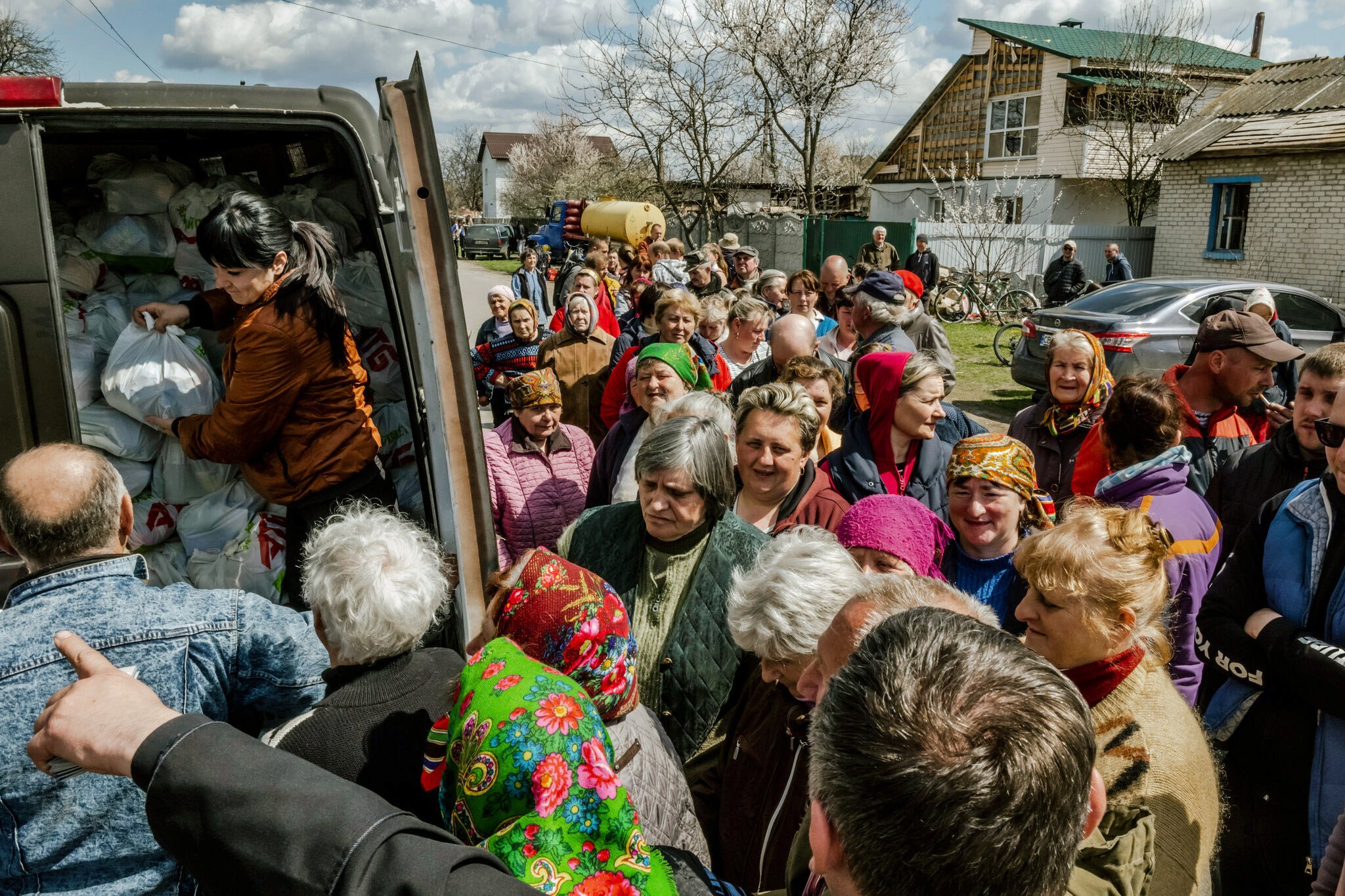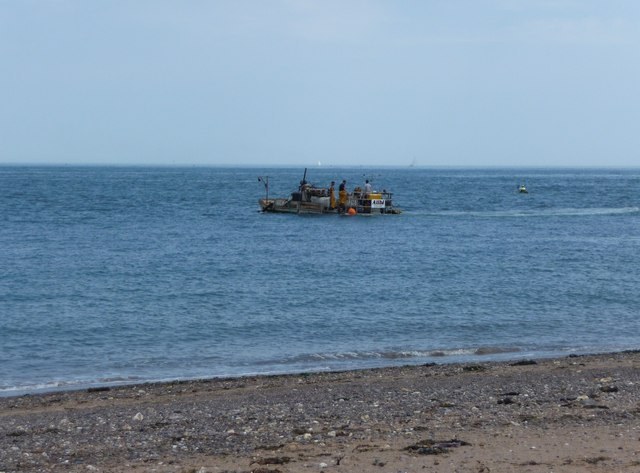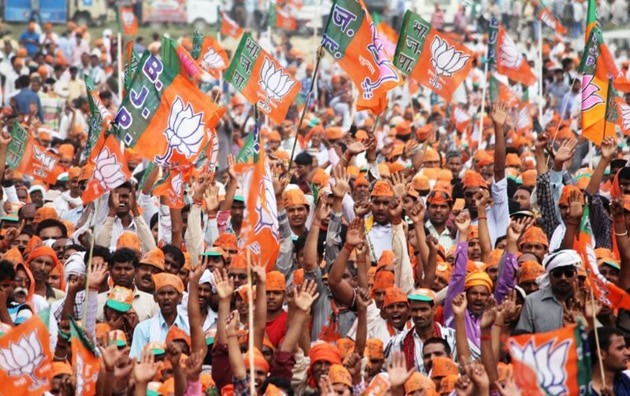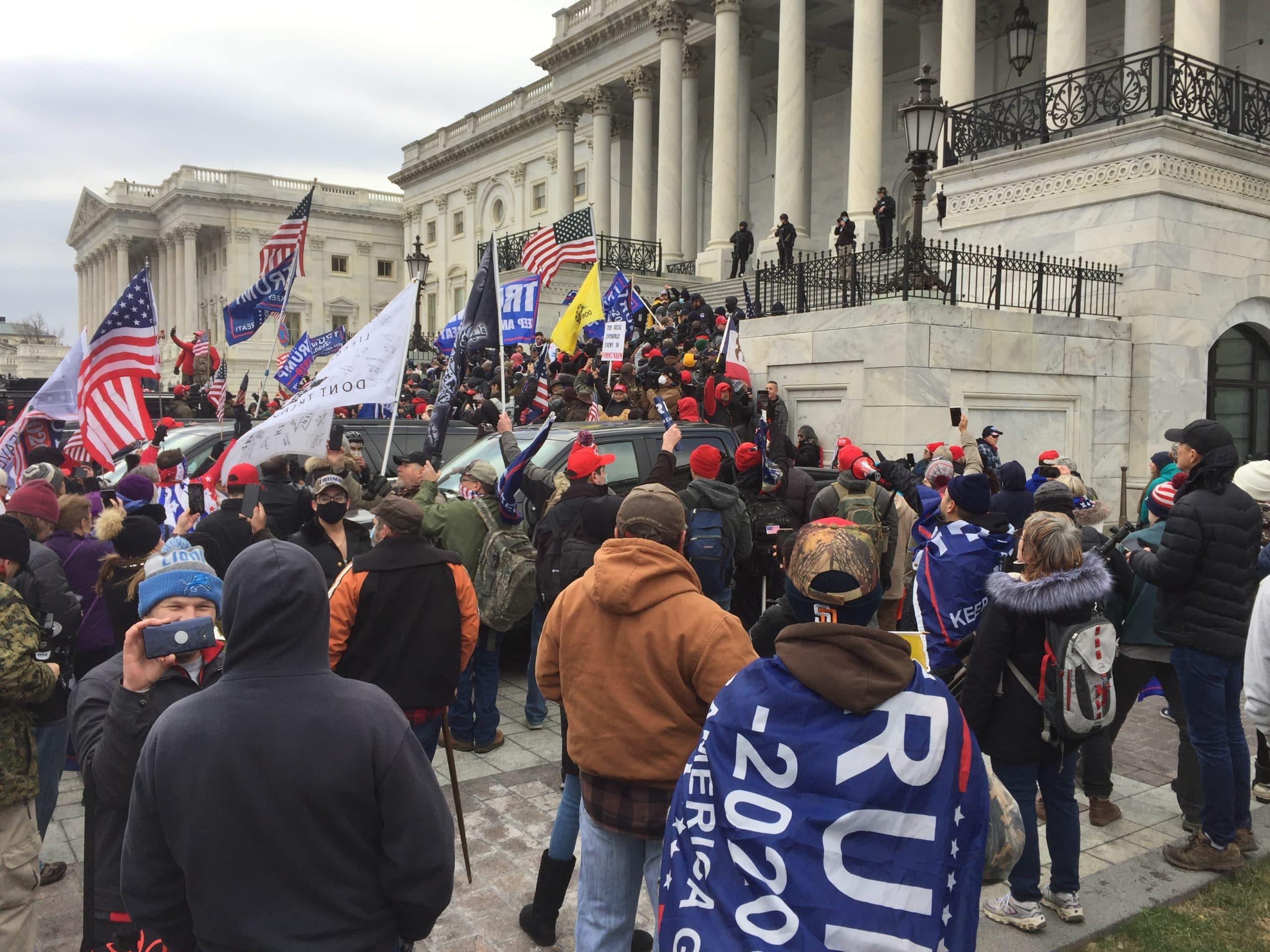Welcome to our roundup of news and current events related to ethics and international affairs! Here’s some of what we’ve been reading this past month:
 Residents waiting to receive food distributed by volunteers near Chernihiv, Ukraine. Photo Credit: Daniel Berehulak via Flickr
Residents waiting to receive food distributed by volunteers near Chernihiv, Ukraine. Photo Credit: Daniel Berehulak via Flickr
BBC: Ukraine war: Thousands of civilians trapped in Severodonetsk
Thousands of civilians are trapped and essential supplies are running out in the Ukrainian city of Severodonetsk, warned the UN. Earlier in the week of June 13, all bridges to the city were destroyed, cutting off the remaining population of 12,000 from the rest of Ukraine. Capturing Severodonetsk, in the eastern Luhansk region, has been a top military goal for Russia as it would give it control over almost the entire region, much of which is already controlled by Russian-backed separatists. A humanitarian affairs spokesperson for the UN said lack of water and sanitation, and dwindling food supplies and health provisions are of huge concern but its agencies have yet to get access or assurances to safely reach trapped civilians. Around 1,200 civilians—including children—are trapped in bunkers underneath the city’s Azot chemical plant.
Read more about the war in Ukraine, refugees, and war crimes in Ethics & International Affairs:
Ukraine: An Ethical Response (March 2022)
War Crimes and the Asymmetry Myth (2021: Volume 35.3)
Expanding Protection: Global Lessons from the Ukrainian Refugee Crisis (March 2022)
 The English Channel. Photo credit: geography.org.uk via Wikimedia Commons
The English Channel. Photo credit: geography.org.uk via Wikimedia Commons
The New York Times: Court Ruling Halts Deportation of Asylum Seekers from Britain to Rwanda
Implementation of a contentious British policy to deport asylum seekers in the country to Rwanda was stalled by an eleventh-hour judgement by the European Court of Human Rights on June 14, grounding the first plane about to take off. In April this year, Britain and Rwanda signed a deal to process and settle migrants in the latter in return for 120 million pounds for economic development programs. Prime Minister Boris Johnson says the plan is a way to tackle illegal migration and thwart criminal gangs sending migrants on dangerous journeys by boat across the English Channel. Critics say the plan is unworkable and unethical—ignoring protections in place for refugees is a waste of money, and will not work in the long-term.
Read more about refugees, borders, and immigration in Ethics & International Affairs:
Helping Refugees Where They Are (2021: Volume 35.4)
Hypocritical Inhospitality: The Global Refugee Crisis in the Light of History (2020: Volume 34.1)
Unjust Borders: Individuals and the Ethics of Immigration (2019: Volume 33.4)
 Supporters of the BJP party at an election rally in Amethi. Photo credit: Government of India via Wikimedia Commons
Supporters of the BJP party at an election rally in Amethi. Photo credit: Government of India via Wikimedia Commons
Reuters: India rushes to quell outrage after insulting remarks on Islam
The Indian government is dealing with rising anger at home and abroad following remarks by two officials from Prime Minister Narendra Modi's Hindu nationalist Bharatiya Janata Party (BJP) on the Prophet Mohammed that were deemed derogatory by many Muslims in India and overseas. Diplomatic fallout has resulted, including with Gulf Cooperation Council countries Qatar, Saudi Arabia, Oman, and the UAE, and regional Islamic nations Afghanistan, Pakistan, and Iran. The BJP expelled an official from the party and thirty-eight people were arrested following rioting in the northern city of Kanpur, as part of efforts to quell religious tensions. The Organisation of Islamic Cooperation in a statement cited bans on the hijab at schools in several Indian states and Muslim property destruction in the country as evidence of the rising intensity of anti-Islamic sentiment and systematic harassment of Muslims.
Read more about minorities, human rights, and injustice in Ethics & International Affairs:
Neither Settler nor Native: The Making and Unmaking of Permanent Minorities (2021: Volume 35.4)
Human Rights in the Seventy-Fifth Year of the UN (2020: Volume 34.3)
Structural Injustice: Power, Advantage, and Human Rights (2020: Volume 34.3)
 Crowd of Trump supporters marching on the U.S. capitol on January 6, 2021. Photo credit: TapTheForwardAssist via Wikimedia Commons
Crowd of Trump supporters marching on the U.S. capitol on January 6, 2021. Photo credit: TapTheForwardAssist via Wikimedia Commons
NPR: Jan. 6 panel says Trump fleeced his base and 5 other takeaways from the 2nd hearing
In the second day of a series of seven promised hearings on the night of January 6, 2021, the House select committee presented taped testimonies from the former president’s campaign advisers and lawyers that Donald Trump refused to listen to them on his lost re-election bid. Trump instead fixated on false conspiracies despite his team’s debunking of each fraud claim, with former Attorney General Bill Barr saying Trump had become “detached from reality.” Additionally, the committee began presenting evidence that Trump had fleeced his own supporters based on election lies, with the $250 million raised following election day mostly going to groups supporting Trump, such as the Save America PAC. The committee is building their case that Trump is responsible for the January 6 riot and insurrection in the U.S. Capitol.
Read more about electoral subversion, disinformation, and nonviolent coercion in Ethics & International Affairs:
Deconstructing Nonviolence and the War-Machine: Unarmed Coups, Nonviolent Power, and Armed Resistance (2021: Volume 35.3)
The Case for Foreign Electoral Subversion (2018: Volume 32.3)
The Ethics of Countering Digital Propaganda (2018: Volume 32.3)